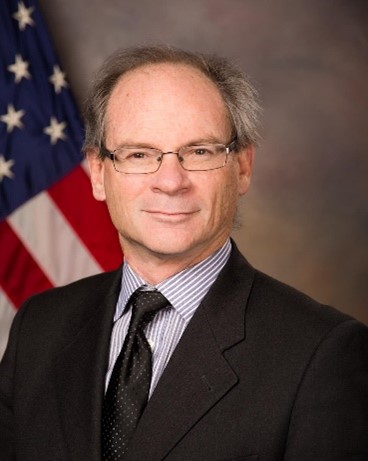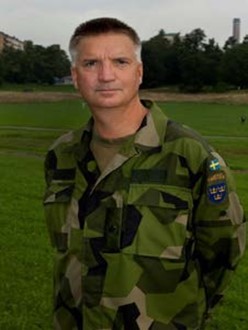Panel 2: Decisive Alliances for Enduring Advantage
8 February
Alliances are a source of enduring advantage. If Germany had collaborated even a fraction as well as the Allies in WWII, it could easily have knocked the Soviet Union out of the war—and won. In the Cold War, alliances like NATO, the US-Japan alliance and the “Five Eyes” helped give the United States a winning hand. But our new era of competition is not WWII or the Cold War—and how can alliances be made to work once more so powerfully in the United States’ favor? Effective collaboration requires knowing each partner’s distinct—as well as shared—national interests, perspectives, strengths, weaknesses, fears, and hopes. Can the United States shape decisive alliances?
Michael Miklaucic (Moderator)
Michael Miklaucic is a Senior Fellow of the Institute for National Strategic Studies at National Defense University (NDU), and the Editor-in -Chief of PRISM, NDU’s flagship journal of national and international security affairs. He is coordinator of the PRISM/INSS Distinguished Speaker Series and the Convenor of the NDU Geoeconomics Community of Interest. Mr. Miklaucic is also a member of the Academic Faculty at the University of Chicago and Adjunct Lecturer at the George C. Marshall European Center for Security Studies. Previously he served in various positions at the US Agency for International Development and the Department of State, including USAID representative on the Civilian Response Corps Inter-Agency Task Force, as the Senior Program Officer in the USAID Office of Democracy and Governance, and Rule of Law Specialist in the Center for Democracy and Governance. In 2002-2003 he served as the Department of State Deputy for War Crimes Issues. In that position he was responsible for US relations with the International Criminal Tribunal for Rwanda (ICTR), the Special Court for Sierra Leone (SCSL), war crimes issues and negotiations in East Timor and Cambodia, and the early implementation of the Sudan Peace Act. He studied at the University of California, the London School of Economics, and the School for Advanced International Studies.
Tsiporah Fried
Tsiporah Fried is currently a senior advisor to the Chairman and Vice Chairman of the French Joint Chiefs of Staff. She is particularly involved in the “preparation of the future,” for which she coordinates the main prospective and strategic research aspects; she contributes to the definition of the General Military Strategy. She is a strategy analyst and thinker in military international cooperation and international relations, with a focus on European Defense, NATO and Transatlantic relations. Senior project manager for military innovation, prospective and transformation, she has been the director of many joint projects, on artificial intelligence, on wargaming where she led the Italian/French/NATO cooperation for the WIN22 (Wargaming initiative for NATO). She is also in charge of the strategic dialogue between the US and FR VCHOD.
Previously, she was a senior auditor at the Cour des Comptes (the highest jurisdiction in charge of public audit and budget control) where she became the expert on the Foreign Affairs department budget control. She conducted several important audits in the Foreign Affairs department and the Justice department. She served also in leadership positions at the French Navy Staff, as a political advisor to the French Chief of Navy and led the Strategic Bilateral Talks with the US Navy, UK Royal Navy, and Indian Navy. She was awarded the medal of Chevalier (Knight)of the “Ordre national du Mérite.” As a Navy Reserve Officer, she was also rewarded the medal for Voluntary Services. Ms. Fried is a former student of the Ecole Nationale d’Administration (ENA – Class LS Senghor – classmate of President Macron). Considered as one of the most elite French Schools, ENA selects and undertakes the initial training of senior officials. It stands as one of the main pathways to high responsibility positions in the public and private sectors.
Dr. Tanvi Madan
Tanvi Madan is a senior fellow in the Project on International Order and Strategy in the Foreign Policy program, and director of The India Project at the Brookings Institution in Washington, DC. Madan’s work explores India’s role in the world and its foreign policy, focusing in particular on India’s relations with China and the United States. She also researches the US and India’s approaches in the Indo-Pacific, as well as the development of interest-based coalitions, especially the Australia-India-Japan-US Quad.
Madan is the author of the book “Fateful Triangle: How China Shaped US-India Relations during the Cold War” (Brookings Institution Press, 2020). Her ongoing work includes a book project on the recent past, present, and future of the China-India-US triangle, and a monograph on India’s foreign policy diversification strategy.
Madan is a member of the editorial board of Asia Policy, a contributing editor at War on the Rocks, and a member of the Australian National University’s National Security College’s Futures Council. Previously, she was a Harrington doctoral fellow and teaching assistant at the Lyndon B. Johnson School of Public Affairs at the University of Texas at Austin. In the past, Madan has also been a research analyst at Brookings, and worked in the information technology industry in India.
Madan has authored a number of publications on India’s foreign policy and been cited by media outlets such as the Associated Press, The Economist, Financial Times, The New York Times, The Wall Street Journal, and The Washington Post. Madan has also appeared on a number of news shows including on the BBC, Bloomberg, CBS, Channel NewsAsia, CNBC, Fox News, India Today TV, NDTV, NPR, and PBS. In addition to a doctorate in public policy from the University of Texas at Austin, she has a master’s degree in international relations from Yale University and a bachelor’s degree with honors in history from Lady Shri Ram College, New Delhi, India. Current affiliations include Asia Policy, editorial board, member; Australian National University’s National Security College, Futures Council, member; War on the Rocks, contributing editor.
Masashi Murano
Masashi Murano is a Japan Chair Fellow at Hudson Institute. His research areas include US-Japan defense cooperation and nuclear/conventional deterrence analysis. Prior to joining Hudson, he was a research fellow at the Okazaki Institute, a Tokyo-based think tank. He has more than ten years of experience in research, analysis, tabletop exercises and facilitation of numerous classified products related to strategic intelligence assessment and policy planning for the Japanese government.
Major General (Ret) Bengt Svensson
Major General Bengt Svensson was the Defense Attaché at the Swedish Embassy to the United States in Washington, D.C. 2015-2020 working to develop the relationship between Sweden and the US. An air defense officer, he is a graduate of the Karlberg Army Academy, Swedish Defense University, the US Army Command and General Staff College, and the NATO Defense College. General Svensson holds a Master of Military Arts and Sciences degree from the US Command and General Staff College and is a member of the Royal Swedish Academy of War Sciences.
A published author and acknowledged expert in international security affairs, General Svensson commanded air defense units from platoon through battalion level and has served multiple tours with the Swedish Armed Forces HQ and Ministry of Defense. Among them Deputy Chief of Staff of Swedish Army and Head of Army Department. He is a veteran of overseas deployments with UN forces in Cyprus and the Balkans. He previously served in Washington as Military Attaché from 2006-2009 and has spent a large part of his career in the fields of international military and security cooperation.




